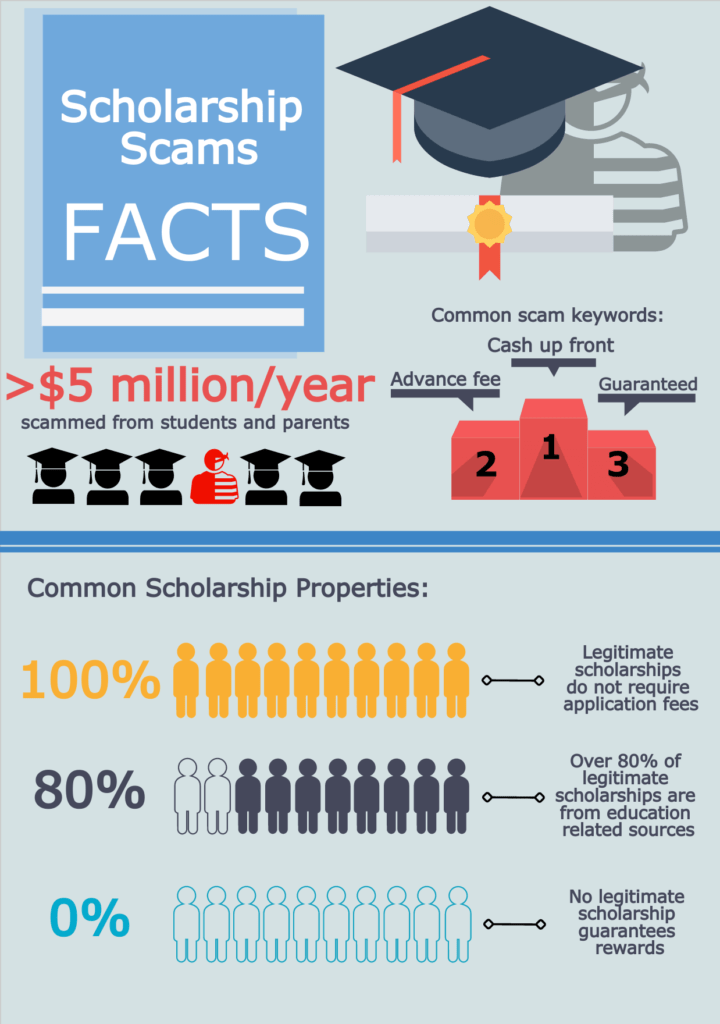Scholarship Scams And How To Avoid Them
Today you will be getting a complete guide on how to detect scholarship scams and how best to avoid them.
What Are Scholarships?
So you probably know that scholarships exist and are a great way for students to take up or complete educational pursuits in any level of learning.
Scholarships are sponsored by individuals, companies, corporate bodies, foundations, universities and even the government.
While some Scholarships are part paid, some are fully funded.
Tuition fees, accomodation and sometimes stipends are provided to the awardees throughout the duration of their study.
Scholarships cover BSc, MSc, PHD or some research project in select universities or universities of your choice.
Though this largely depends on the sponsor and what type of scholarship it is.
But to what brought you here, you probably do not know that scholarship scams exist.
So What Are Scholarship Scams?
Annually, many parents and students are scammed of thousands to millions on scholarship scams.
Scholarship scams often start with a social media post, email, or a letter in the mail. It might look like a personalized invitation, saying you’ve been selected for a particular scholarship or financial aid package.
Sometimes, there’s a callback number or details about an in-person workshop at a local hotel. But these calls and events are usually high-pressure sales pitches where they pressure you to pay for their services immediately — or risk losing out on these “special” scholarships or financial aid packages.
How To Detect A Scholarship Scam
There’s a saying that “it’s not a scam until you fall for it.”
Here are signs that will tell you that scholarship is definitely a scam:
- One 100 characters or less for your ‘essay.’
- Commonly use the term ‘sweepstakes’, ‘drawing’, or ‘random selection.’
- Have zero requirements aside from entering your basic information.
- Ask for your social security number (FAFSA [a government site] is the only legitimate site that should ask for this)
- Are rewarded weekly or monthly.
- Time pressured.

How To Know A Real Scholarship
These days, its becoming increasingly difficult to tell a fake from the original, as both look very much the same.
Real scholarships should:
1 Require essays or at least a few short-answer responses.
2 Most have minimum G.P.A requirements – though there are some exceptions to this
3 Require additional support such as transcripts, SAT/ACT scores and recommendation letters
4 Are rewarded once or twice per year
How To Avoid A Scholarship Scam
If you have already fallen for a scholarship scam, then take note of this to prevent future occurrences:
- Never provide financial information.
- Do not pay for information, to apply for the scholarship, or to receive the scholarship. You should never have to give money to apply for or receive a scholarship.
- Always use reputable sources for your search. Many phony websites are set up to trick you into providing personal or financial information.
- Know that you can find all information about scholarships yourself. This information is freely available, and you do not need special access to get it.